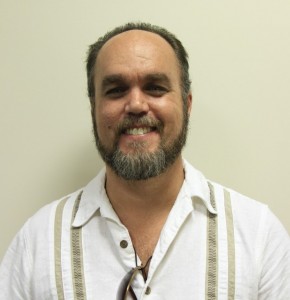 The hypocrisy of government efforts is a well known phenomena. Whatever scheme they embark on is wrapped in the stars and stripes, somehow connected to good Christian behavior and/or “the troops” and presented as necessary for protecting families, especially children. These common tropes then serve as justification for all sorts of behavior, no matter how reprehensible. The truth of course is often far different, and the true reasons for policies and social control are often hidden. Sometimes an effort may start for political gain but then be co-opted for monetary or other reasons.
The hypocrisy of government efforts is a well known phenomena. Whatever scheme they embark on is wrapped in the stars and stripes, somehow connected to good Christian behavior and/or “the troops” and presented as necessary for protecting families, especially children. These common tropes then serve as justification for all sorts of behavior, no matter how reprehensible. The truth of course is often far different, and the true reasons for policies and social control are often hidden. Sometimes an effort may start for political gain but then be co-opted for monetary or other reasons.
Consider the so-called War on Drugs. In the popular imagination it began with then President Nixon, although various interests had been advocating for federal intervention in the use of mind altering substances since the days of alcohol prohibition. This effort, supposedly aimed at making our lives safer, has had terrible consequences, as outlined in blog post by Tony Newman last year in The Huffington Post. Among these: racial injustice; denied education, housing and other benefits; wasted tax dollars; unsafe living conditions (due to prohibition’s connection to crime), weakening constitutional rights as government seeks to circumvent the fourth amendment, violence across the world (including nearly 70,000 deaths in Mexico since 2006), and (ironically) decreased safety for children. It continues in large part because governments, particularly policing agencies, have a vested monetary interest in perpetuating the conflict.
Kids (especially youth of color) are less safe for several reasons. First, communities are destabilized by over-incarceration and its impact on families as well as the localization of violence in lower income neighborhoods. This violence is directly linked to the black market created by illegality.
Next, kids (and again even more kids of color) are policed disproportionately to their drug use. Many white adults enjoy a de facto decriminalization of marijuana because of enforcement patterns. Black youth are disproportionately arrested and prosecuted and receive harsher punishments even though their rates of use are similar to whites. As a consequence they often become ineligible for government assistance in education and housing.
Lastly, the actual impact and dangers of drug use are obscured by moralistic and simplistic educational programs. Despite the best efforts of schools and other institutions over the last four decades kids continue to use drugs, particularly marijuana and alcohol. As Dr. Carl Hart so ably points out, the demonization of illegal drug users and the exaggeration of drug effects is contrary to the evidence before kids eyes. The crack-addled inner city degenerate who will do anything to get his drugs (or his hillbilly meth-using counterpart) is a fiction, not borne out by statistics and research. Like Reefer Madness, these visions of drug users have little to do with reality. Kids know this, and to continue to lie to them or subject them to failed programs like D.A.R.E. is to lose whatever credibility we as adults have.
There is hope, though. I breathed a sigh of relief when I read a recent article in The New York Times about Colorado’s projected tax revenue from the sale of marijuana. “Colorado Expects to Reap Tax Bonanza From Legal Marijuana Sales” is the headline. It encapsulates exactly why this particular front in the so-called War on Drugs may soon be ending. Money has perpetuated it, and money (instead of research) will end it. Politicians are smelling money, and the lure of it will prove stronger than their commitment to this false war. Speech writers and policy wonks will be working overtime to provide the rationalizations for this change in policy. It will be cast as increased freedom, fiscal responsibility or even compassion. Honestly I don’t care why they do it, as long as the war stops. All of us, especially kids, will be infinitely safer.
I argued in several blogs that BOTH drug prohibition and marijuana legalization as implemented in Washington and Colorado makes young people less safe. The reason is that neither of these approaches confronts the fact that Americans of all ages abuse legal drugs, semi-legal drugs, and illicit drugs at levels vastly higher than residents of other Western countries; both approaches incorporate elements that exacerbate drug abuse; and both approaches continue to harshly criminalize young people who use marijuana responsibly. One could argue reasonably that since both the “drug war” and marijuana legalization have bad effects, we might as well choose the less punitive and intrusive path that results in fewer arrests and imprisonments. But what we should be discussing, vigorously, is why Americans abuse drugs at such high rates despite their legal status, why we cannot discuss these realities honestly even amid epidemics, and why America remains utterly unable to evolve social and health systems capable of addressing drug abuse before it soars wildly out of control.
Hi Carol,
Thanks for your insightful comment paralleling policy-level issues that cross the War on Drugs and Human Trafficking Task Forces. Please see our editorial package below addressing human trafficking. We’d be interested to hear what you think.
http://jjie.org/using-mainstream-media-to-open-eyes-to-human-trafficking/106110/
http://jjie.org/106101/106101/
http://jjie.org/raising-awareness-key-to-fighting-sex-trafficking-experts-say/106154/
http://jjie.org/chicago-a-national-hub-for-human-trafficking/106107/
Human trafficking (sex trafficking, CSEC, DMST) policies, initiatives and legislation are copying the war on drugs. Federal, state and local law enforcement that once were VICE, gang and terrorism officers are now on Human Trafficking Task Forces – and are putting youth at risk every day.